In post-coup Myanmar, number of people displaced by violence tops 1 million
More than one year into the military coup in Myanmar, the number of internally displaced people has topped one million for the first time, according to the United Nations.
The displaced people include tens of thousands of Rohingya Muslims who were driven from their homes before the junta took over from the West-back government of Aung San Suu Kyi.
The UN Office for the Coordination of Humanitarian Affairs (UNOCHA) said on Tuesday that virtually 700,000 people have been forced to flee their homes since the military toppled the government of the de facto leader Suu Kyi in February last year.
The coup has sparked violence across the Southeast Asian nation with civilian militias being formed to fight back against the junta, which is accused of razing villages, mass extra-judicial killings, and airstrikes on civilians.
More than 12,000 civilian structures are estimated to have been burned or destroyed since the coup, UNOCHA said, with the approaching monsoon rains threatening more misery for those putting up in displacement camps.
More than 300,000 of those displaced since the coup belonged to the restive northwestern Sagaing region, it added.
The military chief Min Aung Hlaing said in March that the junta would "annihilate until the end" its opponents.
Over 1,800 people have been killed and more than 13,000 arrested in the junta's crackdown on its opponents since the coup, according to a local monitoring group.
The post-coup violence has added to an estimated 346,000 people already displaced before the junta takeover.
That includes those affected by long-running conflicts with ethnic rebel groups along with the Thai and Chinese borders and Rohingya Muslim people who were forced from homes during the military’s state-sponsored crackdown against the community in 2017.
The displacement of Rohingya Muslims from Myanmar’s Rakhine state started in October 2016, following the crackdown by Burmese security forces. While tens of thousands were internally displaces, many others fled to neighboring Bangladesh and India.
In August 2017, however, things took a rough turn after Rohingya refugees fled to Bangladesh en masse to escape persecution, murder, arson, and rape. It was described by the United Nations as “a textbook example of ethnic cleansing”.
In July 2021, the UN Human Rights Council adopted a resolution denouncing violations by Myanmar’s military against Muslims and other ethnic minorities.
Suu Kyi defended the army's conduct by traveling to The Hague to rebut charges of genocide at the UN's top court in December 2019.
The mostly Muslim Rohingya have for decades been denied citizenship, rights, access to services, and freedom of movement.
Last week, the UN Refugee Agency (UNHCR) said the number of people forced to flee conflict, violence, human rights violations and persecution had reached the staggering milestone of 100 million for the first time on record.
“One hundred million is a stark figure -- sobering and alarming in equal measure. It’s a record that should never have been set,” said UN High Commissioner for Refugees, Filippo Grandi.
“This must serve as a wake-up call to resolve and prevent destructive conflicts, end persecution, and address the underlying causes that force innocent people to flee their homes”.
The number of forcibly displaced people worldwide rose to 90 million by the end of 2021, he said, fueled by new waves of violence or protracted conflict in countries including Ethiopia, Burkina Faso, Myanmar, Nigeria, Afghanistan and the Democratic Republic of the Congo.
US embassy in Saudi capital set ablaze after drone attack: Riyadh
Saudi Arabia, Qatar foiled Mossad bombing plots on their soil: Tucker Carlson
Iran's firm response will last as long as attacks do: Envoy
Shedding of American, Iranian blood on ‘Israel firsters’: Iran FM
Iran condemns IAEA inaction as US-Israeli aggression targets nuclear facilities
Iran FM: Kuwait must answer what US aircraft were doing in its airspace if it downed them
IRIB chief says Tehran compound hit in Israeli-US aggression, broadcasts continue
US-allied fuel tanker attacked by Iran still burning in Strait of Hormuz: IRGC


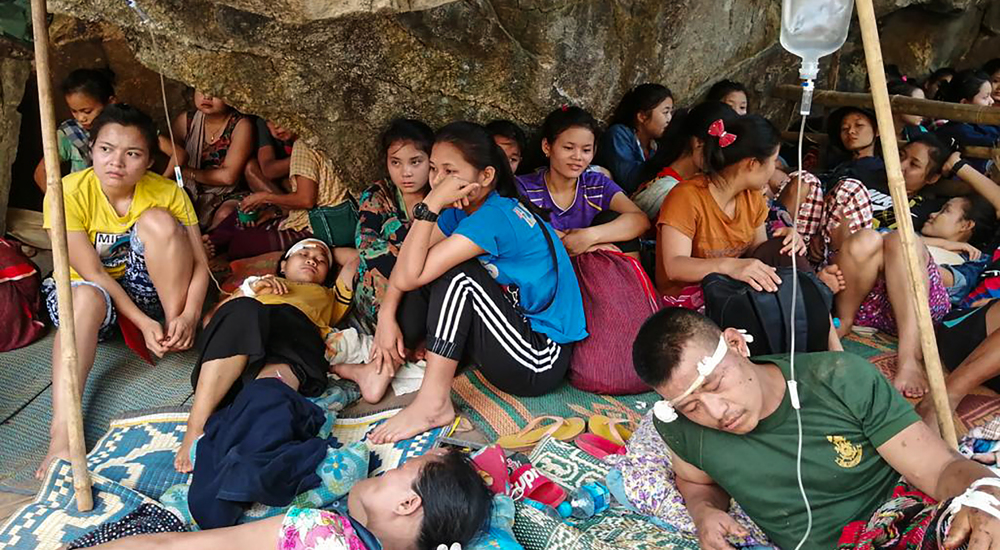
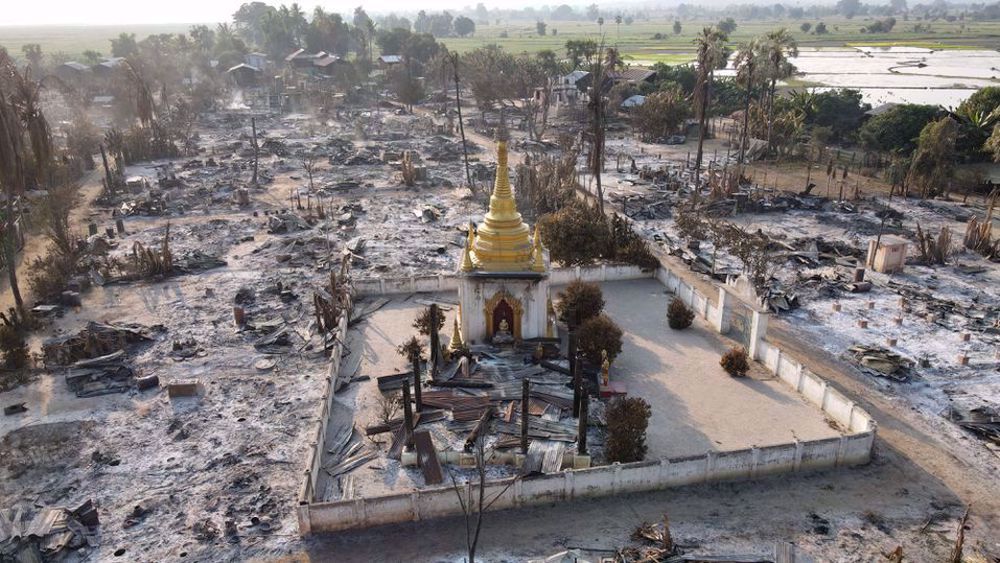
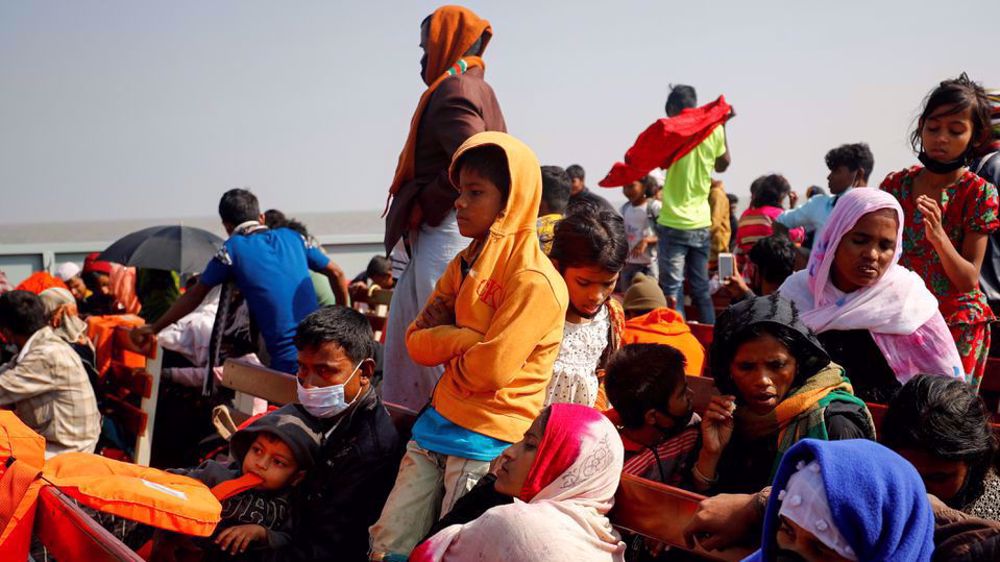






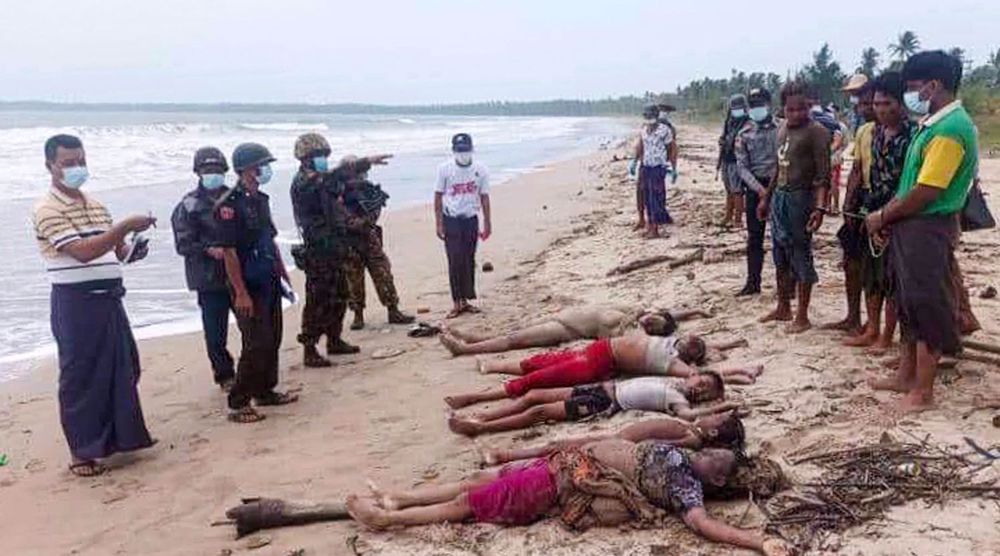
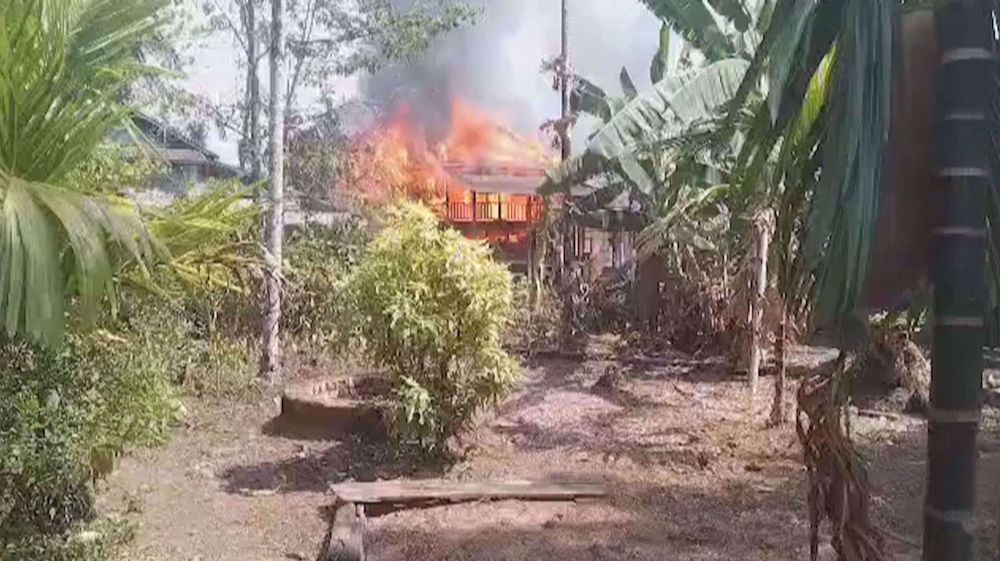

 This makes it easy to access the Press TV website
This makes it easy to access the Press TV website